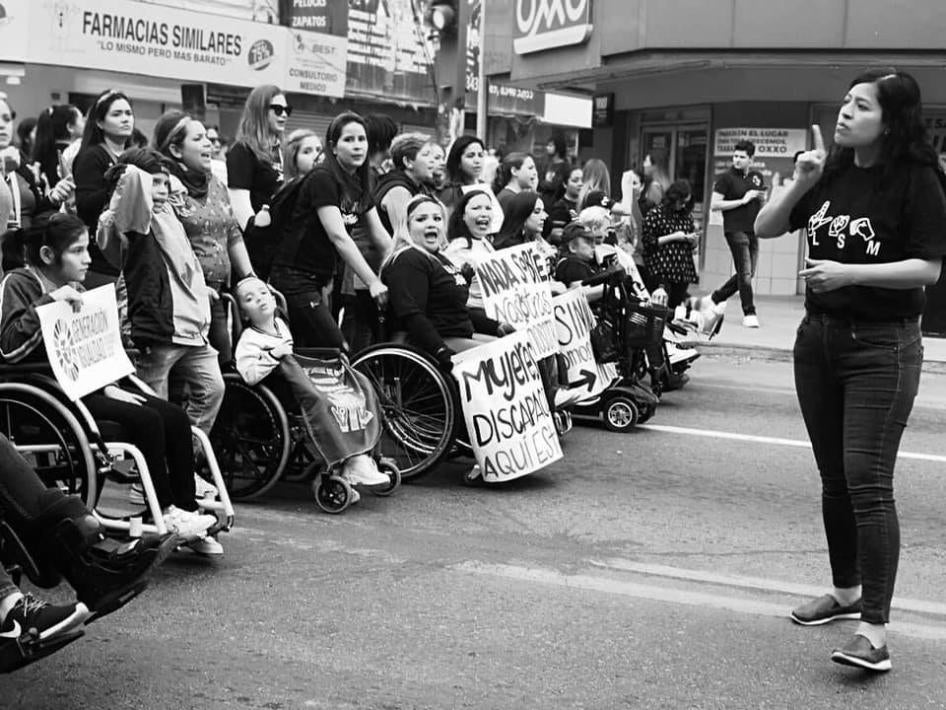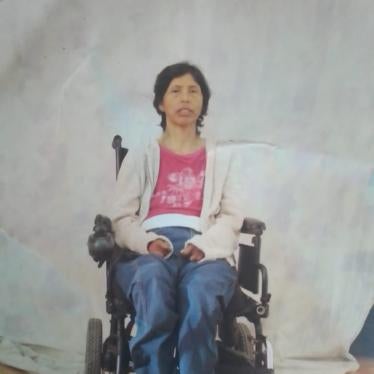Imagine being trapped with someone who is violent and abusive towards you and having no way to escape. You can’t call for help because you have a physical disability that prevents you from leaving your bed, your room, and your house. This is the reality many women with disabilities experience every day.
In 2020, Human Rights Watch documented the many ways in which people with disabilities in Mexico face severe abuse and neglect by their families with little protection or support from the government. Our investigation found that shelters for women who are survivors of violence were not accessible for those with disabilities, and that there was no legal obligation for shelters to provide services to this group.
Today, there are reasons for hope. In early May, a reform to the General Law for Women's Access to a Life Free of Violence was finally signed into law, calling for women with disabilities to be included in policies aimed at preventing, prosecuting, and sanctioning violence against women. This reform is the product of joint efforts by various organizations of women with disabilities, human rights organizations, and experts, who have pressed members of Congress for more than two years to make public policy more inclusive for women, including women with disabilities.
The reform requires that both Women’s Justice Centers—state-run facilities providing legal and psychological support—and temporary shelters for survivors of violence must be accessible to women with disabilities. This includes providing personal assistants to help women with disabilities do basic tasks like get out of bed, use toilets, and perform other daily life activities, enabling them to use the facilities on an equal basis with others.
There’s a long way to go for this reform to be fully realized in practice, but it represents an important step in tackling family violence against women by ensuring that psychosocial support, childcare, housing, and other policies to support women are inclusive of those with disabilities.
To ensure the reforms have a meaningful impact, the Mexican government should closely consult organizations of women with disabilities in rolling out these important measures.
** This article is part of a series marking the 10th anniversary of Human Rights Watch's Disability Rights Division.









